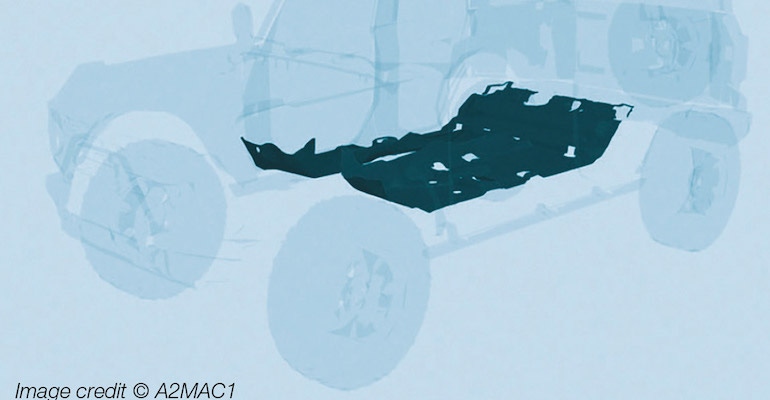Visco-elastic foam containing up to 20% bio-based content lowers automotive carbon footprint without sacrificing performance.
November 4, 2022

Huntsman has launched Acoustiflex VEF BIO — a visco-elastic foam containing up to 20% bio-based content derived from vegetable oils for molded acoustic applications in the automotive industry. This new solution can lower the carbon footprint of automotive carpet back-foaming by up to 25% compared with existing Huntsman systems for this application. The technology can also be used for dash and wheel arch insulation.
The Acoustiflex VEF BIO system addresses rising demand for material technologies that can help automotive manufacturers lower their carbon footprint without sacrificing performance. The bio-based content in its Acoustiflex VEF BIO system has zero impact on any of the acoustic or mechanical characteristics required by makers of parts or automotive OEMs, said Huntsman.
Irina Bolshakova, Global Marketing Lead for Automotive Polyurethanes at Huntsman, explains more: “Previously, there was a frustration that incorporating bio-based content into a polyurethane (PU) foam system would have a detrimental impact on performance, specifically on emission and odor levels. The development of our Acoustiflex VEF BIO system proves that doesn’t need to be the case.”
To wit:
Acoustic performance analysis experiments show that Huntsman’s original VEF systems can outclass standard high-resilient (HR) foams at lower frequencies (<500 Hz). Acoustiflex VEF BIO system achieves the same magnitude of sound-reducing capability.
In developing the Acoustiflex VEF BIO system, Huntsman has continued its work in the development of zero-amine, zero-plasticizer, and extremely low aldehyde-emitting PU foams. As a result, the system is ranked low in emissions and odor.
The Acoustiflex VEF BIO system remains lightweight.
Huntsman’s automotive team has ensured there are no associated processing disadvantages. The Acoustiflex VEF BIO system can still be used to quickly create components that have complex geometric shapes and sharp angles, with high productivity rates and demold times as low as 80 seconds, depending on part design.
“Polyurethanes are very hard to beat when it comes to pure acoustic performance,” continued Irina. “They are incredibly effective at muffling sound, reducing vibrations, and dampening down any harshness caused by the movement of a vehicle. Our Acoustiflex VEF BIO system takes that to the next level. Incorporating bio-based content into the mix to deliver a lower carbon acoustic solution, that does not compromise emission or odor requirements, is far better for vehicle brands and their partners and customers – but also the planet.”
About the Author(s)
You May Also Like




